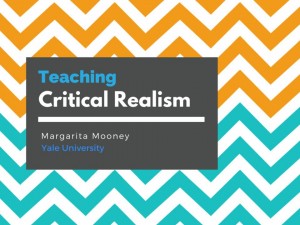Part 3 in a Series on Personhood
My previous posts examined the concept of the person as distinct from the individual, and the philosophical field known as personalism. This post takes up more directly the question: What difference does our understanding of the person make for social science research?

Although numerous authors have contributed to the personalist tradition, here I focus on writings by the Polish phenomenologist Karol Wojytla, and his concept of human action as participation. Who was Karol Wojtyla? He was an actor, a playwright, a Catholic priest, political dissident, bishop of Krakow and Cardinal. Clearly, he is most known for being Pope John Paul II who led the Catholic Church from 1978 until his passing in 2005.
I have vague memories of when Wojtyla was elected to the papacy in my young childhood, and much more vivid memories of when he was shot in 1981. However, I only started paying attention to his writings nearly twenty years into his papacy, in 1998, when he visited my mother’s homeland of Cuba. His speeches and homilies during that trip intrigued me because, as a graduate student in sociology at the time, they drew on the personalist tradition to critique both Cuban-style Marxist collectivism and unrestrained liberal capitalism.

My journey in getting to know the life and work of John Paul II lead me to read two biographies of him, many of his encyclicals, and several of his books, namely Love and Responsibility and The Theology of the Body. In 2002, I saw Pope John Paul II from a crowd of literally millions of people who gathered in Toronto for World Youth Day 2002. I’ll never forget the tone and emphasis he gave to one emphatic statement, “Do not be afraid!” Living under communism in Poland, Pope John Paul II knew fear in himself and others, and he knew that the living the truth requires courage, especially in the face of the moral relativism of the West and the totalitarian collectivitism of the East.
In 2004, I saw Pope John Paul II much closer when I visited Rome. As he rode around St. Peter’s square in his Popemobile, I inched up toward the fence and his eyes fell directly on mine. His gaze is hard to describe—it was like he penetrated right into my heart, right into my being, in a very brief and silent but nonetheless moving encounter.
During that same trip to Rome in 2004, just as I snapped a photograph of John Paul II riding towards me on the Popemobile, the wind blew off his white zucchetto (skull cap). My photograph shows John Paul II’s hand on his head, his zucchetto floating in the air, and a bright light like a halo shining on his head. Amused by the picture, I mailed a copy of it to the pope along with a personal note. To my amazement, I received a reply in the mail less than three weeks later. John Paul II’s personal secretary, Cardinal Dziwisz, specifically responded to the one prayer request I mentioned and signed the card by hand. Although the Pope’s signature on the card was computer printed, I still think he saw the picture I sent, read my note and saw my name, giving a personal touch to our encounters.
Recently, I have begun to read John Paul II’s work The Acting Person. Through his work as an actor, a professor of ethics, and a pastor of local churches and finally the universal Catholic Church, John Paul II grappled with a fundamental tension of modernity: how can the autonomous, rational individual so celebrated by the Enlightenment be reconciled with the social nature of the person? Is social action nothing other than role playing (a la Erving Goffman)? Are social relations only good to the extent that they serve an individual’s needs? Must individuals deny their own good in the name of social solidarity?
Early sociological theorists grappled with similar questions. How can social life be integrative and not anomic, Emile Durkheim asked? How do political and religious figures establish legitimate forms of authority without which social life would become chaotic, Max Weber pondered?
More generally, contemporary social theory has struggled to reconcile ideological commitments to individual autonomy, choice and agency with the reality that, as sociologists, the vocation proper to our discipline is to show how our choices and our even our consciousness are shaped by communities—and not just those we communities we choose but also those to which we belong by birth (like sex and class) or ascription (like race).
In The Acting Person, Wojtyla argues that personal freedom and the social nature of the person can be reconciled through personalistic actions which he terms participation. Participation consists of actions that correspond to both individual freedom and the social nature of the person. The chart below describes personalistic action, or participation, by contrasting it with actions Wojtyla says would not be participation.
| Characteristics of Participation | Characteristics of Actions that are Not Participation |
| Participation presumes a relational ontology: humans are social by nature. By acting together with others we exercise our capacity for personhood. | An individualist ontology presumes that individuals interact with others solely to fulfill one’s individual desires or good. |
| Participation is oriented toward both one’s own good and the common good, not competition between the two, and thus fulfills the human person. | Actions done with others that constitute moral evil are not participation because they do not fulfill the person. |
| Participation consists of freely chosen actions with others. Participation may be influenced by group belonging or even by the desire for group belonging, but such social influences and social belongings per se do not deny personal freedom and personal choice. Even if one’s choice is affected by others, actions are participation when they integrate oneself with others. | Performing an act with others is not automatically the same as fulfilling oneself in an action. Coerced actions, such as many actions required in totalitarian states, are not participation because they are not freely chosen. |
| Participation is inter-subjective, participating in the humanity of the other, and not only objective. | Group membership is not participation if group interactions remain only at the objective level. |
Wojtyla leaves us with a key question: what types of external situations and internal dispositions lead to this participation or personalistic action? Studying the interplay between social context and individuals is a central goal of sociology, and in future posts, I will write about my work on liturgical practices as a constitutive-ends practice, that is, an expression of the relational nature of persons, not just a group activity that increases individual happiness or one’s social standing.











